
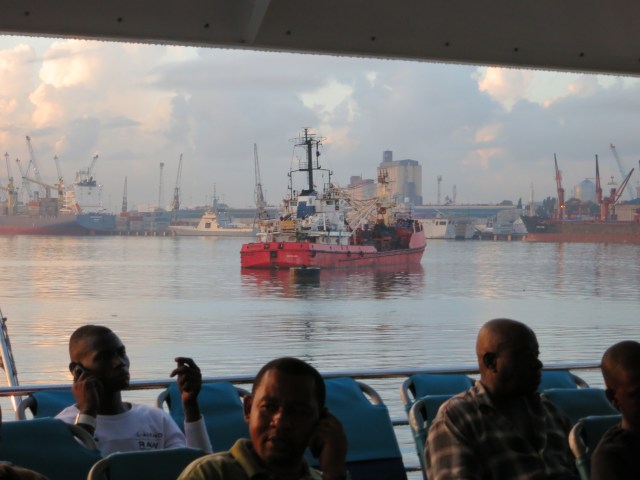
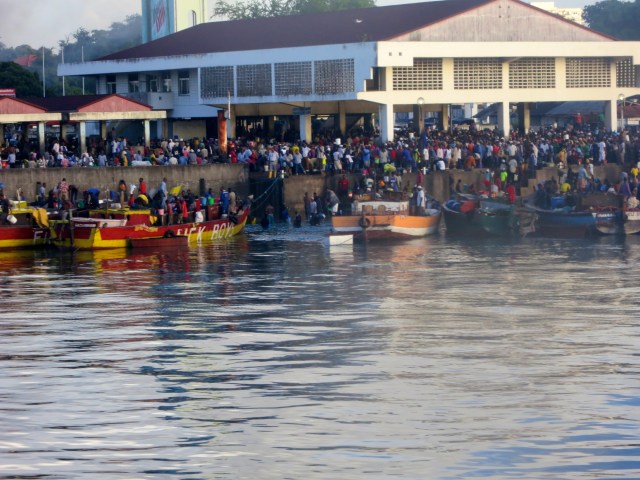
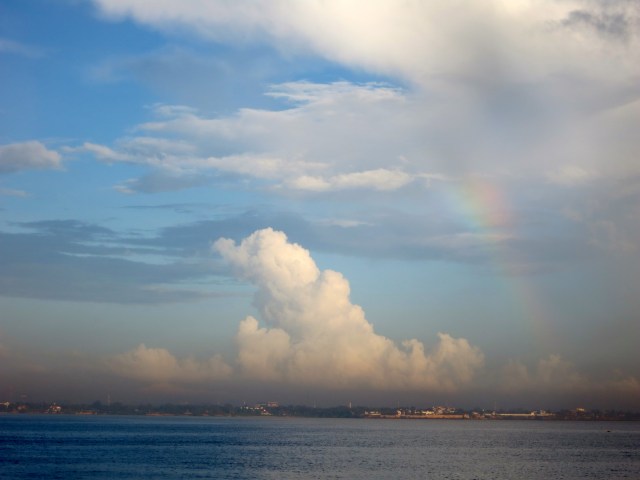

In response to The Daily Post’s weekly photo challenge: “Afloat.”
"There is some good in this world…and it's worth fighting for." ~ J.R.R. Tolkien






In response to The Daily Post’s weekly photo challenge: “Afloat.”
TANZANIA declared a ban on witchcraft in an effort to halt deadly attacks on albinos. The move follows mounting pressure on the government to protect albinos, who lack pigment in their skin and hair, and whose body parts are used by witch doctors in so-called magic potions thought to bring power and wealth. The U.N. human rights agency says more than 70 people with albinism have been killed for body parts in Tanzania since 2000. Minister for Home Affairs Mathias Chikawe said on January 13 that the government has formed a task force that will investigate killings and review court cases for accused attackers, some of whom have gone free. Ernest Kimayo, chairman of the Tanzania Albino Society, welcomed the government’s actions, saying it will improve life for his community.
Also in TANZANIA, some 800 school girls returned home on Monday, January 12 after escaping female genital mutilation (FGM) by spending three months hiding in safe houses. FGM is traditionally carried out on girls between October and December. Run by charities and church organisations, the shelters offer protection (including police protection at some) to ensure the girls remain safe. FGM was outlawed in Tanzania in 1998 and carries a punishment of up to 15 years in prison, but is still regularly carried out, especially in northern and central regions of Tanzania.http://allafrica.com/stories/201501050530.html
CANADA: The Inter-American Commission on Human Rights (IACHR) issued a report on the disappearances and murders of indigenous women in British Columbia, finding it part of a “broader pattern” of violence and discrimination against aboriginal women Aboriginal women are significantly over-represented as victims of homicide in Canada; The Royal Canadian Mounted Police has reported that about 1,200 aboriginal women and girls were murdered or went missing in Canada between 1980 and 2012.) The IACHR called on the Canadian government to institute a national inquiry into the issue and to develop a coordinated national response that addresses the root causes of the violence, including Canada’s history of colonization, inequality and economic and social marginalization.)
The United Nations High Commissioner for Refugees issued its Mid-Year Trends 2014 report on global formed displacement in first six months of 2014. Armed conflicts displaced an estimated 5.5 million people, with 1.4 million of those fleeing to other countries, says a report by the United Nations High Commissioner for Refugees. Syrians have become the largest group of displaced people within UNHCR’s mandate, overtaking Afghans who held that position for three decades.
NIGERIA: International coverage of the tremendous human rights tragedy in Baga, Nigeria has finally picked up, but there has been less coverage of Boko Haram’s use of children as suicide bombers. The UN Children’s Fund (UNICEF) has expressed concern about what it called “escalating violence against children in northern Nigeria.” The statement came after two explosions ripped through a market in northeastern Nigeria Sunday killing at least five people, including the two bombers. Twenty-one others were wounded. The attacks were said to be carried out by two young girls. Sunday’s explosions came after a bomb strapped to a girl exploded in Maiduguri killing at least 19 people. “We are seeing a new trend of using girls and women, and now of children, as suicide bombers. This is something that is new to this conflict. So, this trend is very worrying to us because this is something that is very difficult to find [a] solution to.”
CENTRAL AFRICAN REPUBLIC: A spokesman for the Ugandan army announced that on January 14 Lord’s Resistance Army rebel commander Dominic Ongwen was handed over to Ugandan troops that are part of an African Union force in the Central African Republic. He will be flown to The Hague to stand trial at the International Criminal Court for war crimes and crimes against humanity. He was indicted by the ICC almost a decade ago, but only surrendered last week and was taken into the custody of US special forces. One issue that is sure to come up during the ICC trial: Ongwen is the only one among the five LRA indictees who was abducted as a child and forcibly conscripted into the LRA.
TAJIKISTAN: Prominent human rights lawyer Shukhrat Kudratov was sentenced on January 13, 2015, to nine years in prison following what Human Rights Watch describes as a “politically motivated trial” that struck a blow to freedom of expression and the independence of the legal profession in Tajikistan. A court in Dushanbe found Kudratov, who is also deputy head of the opposition Social Democratic party, guilty on criminal charges of fraud and bribery. Kudratov is known for taking on politically sensitive cases, including representing victims of police torture and those accused of “religious extremism.”
EGYPT: The acquittal in Egypt on January 12, 2015, of 26 men accused of “practicing debauchery” is a rare success in protecting the rights to privacy and nondiscrimination against LGBTI persons. The men were arrested at a hammam or bathhouse in Cairo on December 7, 2014. Government prosecutors have appealed the decision, the Egyptian Initiative for Personal Rights (EIPR), a nongovernmental group, reported, but authorities released all 26 men. It is the first time since 2011 that a trial court is known to have handed down a total acquittal in a “debauchery” case. Rights activists say 2014 was the worst year in a decade for Egypt’s gay community, with at least 150 men arrested or put on trial. Because there are no laws criminalizing homosexuality in Egypt, a decades’ old law criminalizing prostitution is often used in penalizing the gay community. The trial opened unusually quickly – only two weeks after the raid on the bathhouse — amidst biased media coverage that “convicted the defendants before they even set foot in court”.
MEXICO: State prosecutors have detained the town of Medellín de Bravo’s entire police force following the disappearance of journalist Moisés Sánchez Cerezo in Mexico’s southern state of Veracruz. A group of nine armed men took Sánchez from his home earlier this month along with his computer, camera and telephones. Sánchez publishes a local weekly La Union where he wrote about local government corruption and violent deaths, as well as publishing citizen complaints. Some of his journalism was aimed at Medellín de Bravo’s mayor, Omar Cruz. Thirty-six members of the police department were brought in to give statements in the investigation.
In other news related to Mexico‘s serious problem with local corruption and disappearances and extrajudicial killing, the Mexican attorney general’s office this week obtained arrest warrants for kidnapping against the former mayor José Luis Abarca and 44 others implicated in the case of 43 students who went missing in September 2014 after being attacked by municipal police allegedly working with a local drug cartel.
GERMANY: Dresden police have launched a murder investigation into the death of Eritrean refugee Khaled Idris Bahray. On Tuesday morning, Bahray was found stabbed to death in an inner courtyard at the housing complex where he lived. According to his flatmates, he had left the flat late the night before to go out to a shop but never returned. Dresden has been making headlines recently for its anti-immigrant rallies, which, on the night of Bahray’s death, attracted a record number of 25,000 supporters. Tensions in the city have been high in the 12 weeks since the rallies began, with a reported increase in racist attacks. While the motive for Bahray’s killing and the identity of his killer remain unknown, a Swastiska was found daubed on the 2nd floor flat where Bahray lived with 7 other Eritrean refugees just three days before he was killed. It was accompanied by the threat, “We’ll get you all”.
CAMBODIA: Self-exiled Cambodian-American dissident Serey Ratha was sentenced in absentia yesterday at the Phnom Penh Municipal Court to seven years’ imprisonment and fined 25 million riel ($6,250) under the charges of treason, obstructing electoral procedures in 2013 and inciting to overthrow Cambodia’s government related to a Facebook post prior to the 2013 election. Three other men (Serey Bunlong, Sen Someng and Oum Phirum) were each sentenced to six years in prison and fined 5 million riel ($1,230) for treason and obstructing electoral procedures after they reportedly distributed T-shirts with slogans admonishing citizens to abstain from voting in the last national election.
Finally, some brilliant teenagers in the UNITED STATES inspired me this week with their spoken word poem Somewhere In America.
Trash container in Dar es Salaam, Tanzania.
“Tupa taka hapa” is Swahili for “Dispose of waste here.”
This post is a response to the Weekly Photo Challenge: Containers.
See also Juxtaposition I: Coke vs. Pepsi in Old Baneshwor, Kathmandu, Nepal.
For more responses to the Weekly Photo Challenge theme Juxtaposition, click here.

I’m sharing this photo of hundreds of open family law case files at at the Legal and Human Rights Centre in Dar es Salaam, Tanzania in response to the Weekly Photo Challenge: The Hue of You. Two LHRC attorneys are responsible for all of these open cases.
The work of a human rights warrior can be hard, but it is definitely ALWAYS interesting – and colorful!
“Choose a job you love, and you will never have to work a day in your life.”
― Confucius
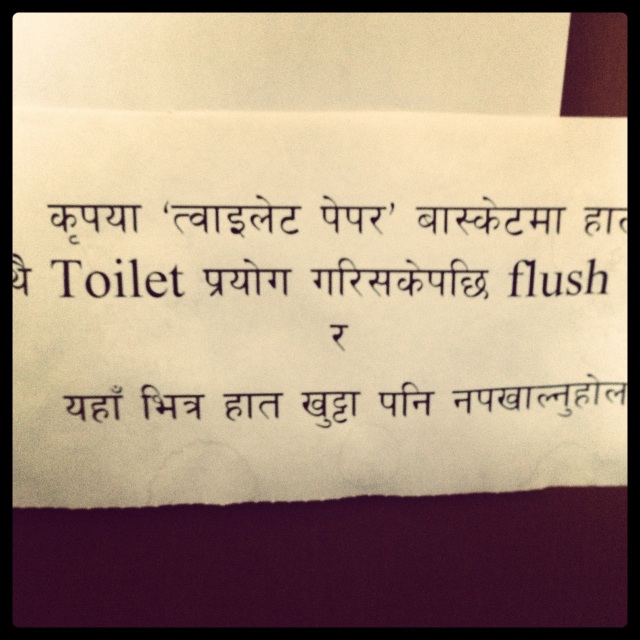
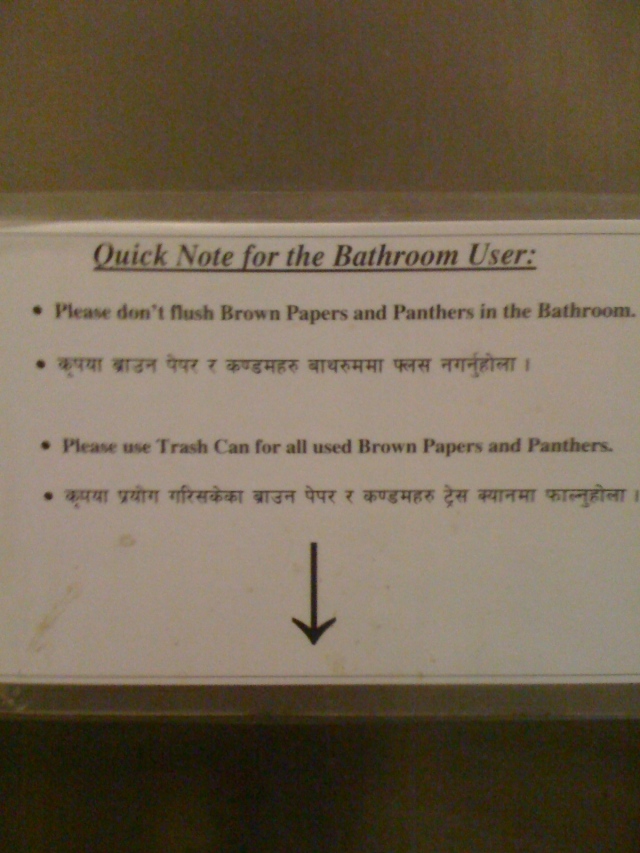

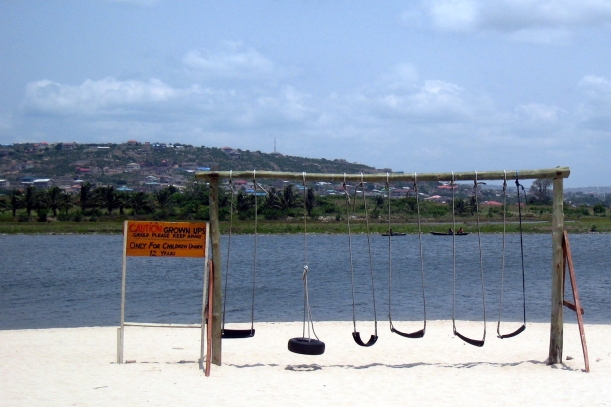
CAUTION! GROWN UPS!
Accra, Ghana

Relax.
Minneapolis, MN USA
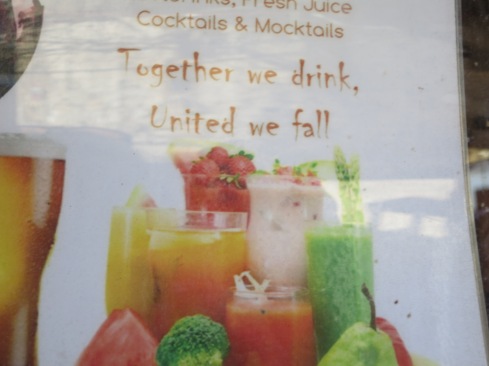

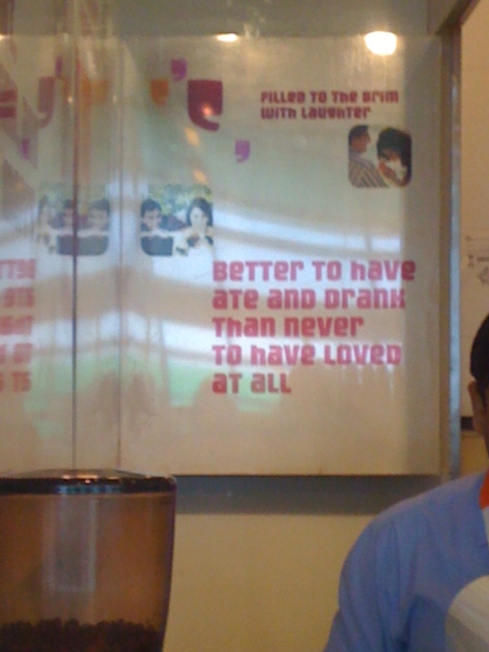
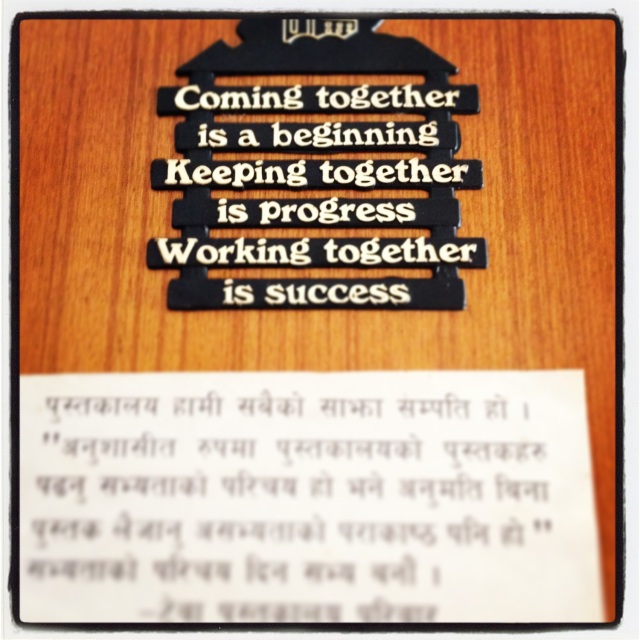
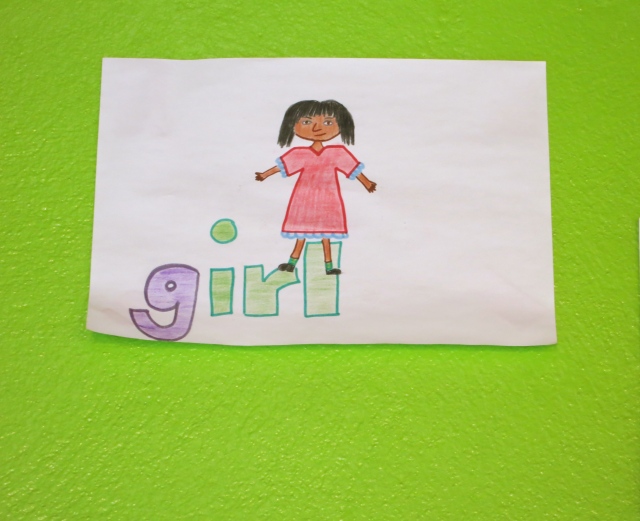
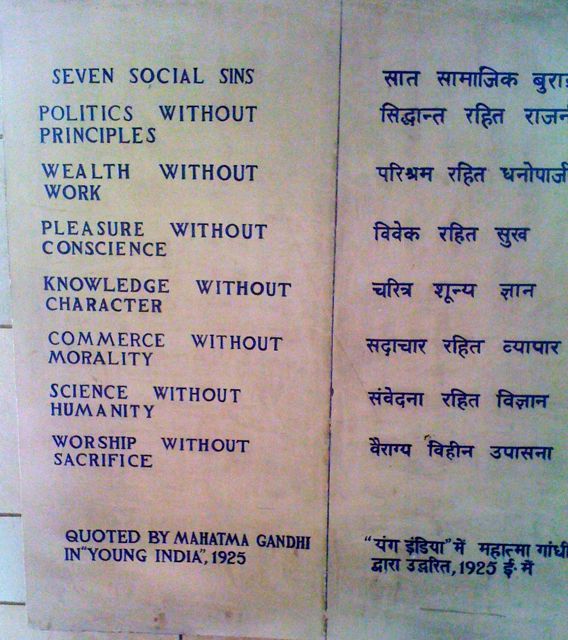
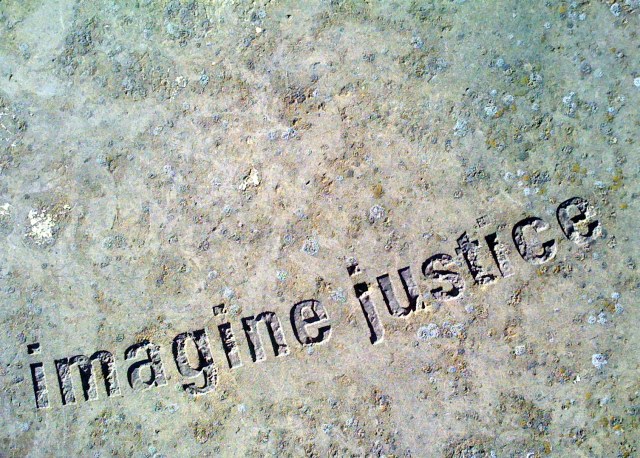
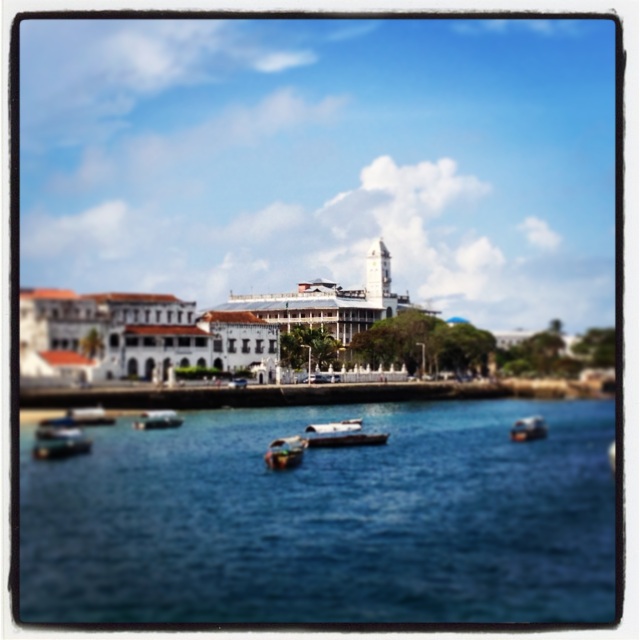
A little more than 10 years ago, I had a rare moment of clarity. I was sitting with my second child, who was 9 months old, on my lap while my 2-year-old danced and swayed around me. Everyone else in the Mommy and Me class was singing – with gusto – the Barney song “I Love You”. Glancing at the clock, I realized that the week before – at exactly this time – I was being interviewed live on national TV in Peru about that country’s truth and reconciliation commission.
The stark contrast made me realize that I had chosen a life in which there might never really be a “typical” day. Setting aside the insipidity of Barney, I realized that these small moments with my young sons were as important and valuable as the other, more high-profile moments of my career, which often takes me to exotic locales. I learned not to compare my days. Not to sift through the experiences of each day and measure the worth of one against another, but to see them all as a whole. To acknowledge that each endeavor for work and for family gives me strength for the other. To realize that I am fortunate to have these varied experiences, which, woven together form the rich tapestry of my life.
So for the Weekly Photo Challenge: A Day in the Life, I am choosing to share one day that I recently spent in Zanzibar for work. As I write this, my daughter is sitting beside me, looking at the photos and talking about them with me. One day in Zanzibar, one day of spring break at home. Days and experiences, knitted together – so many days to be thankful for!
(See more Weekly Photo Challenge entries here.)
You must be logged in to post a comment.